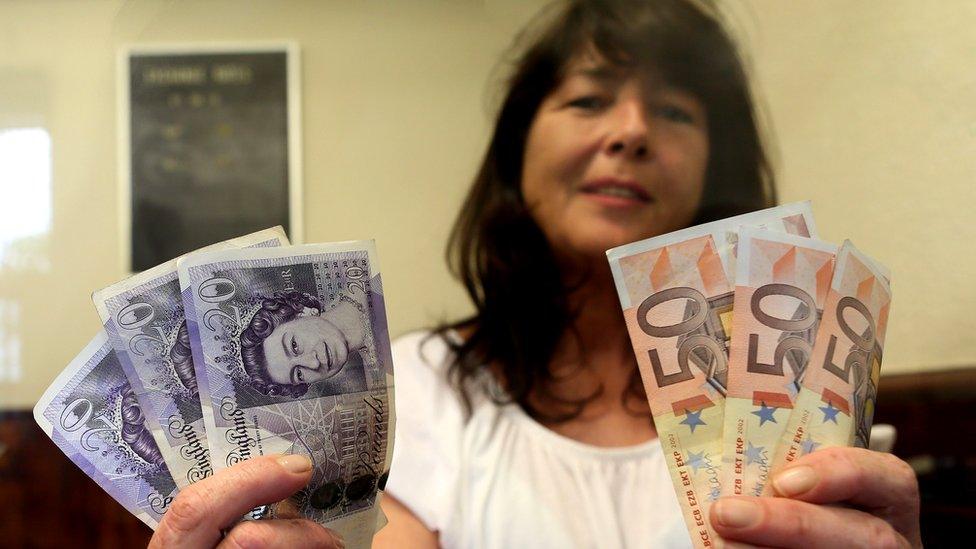Bespoke or off-the-peg: How might the Brexit transition look?
- Published
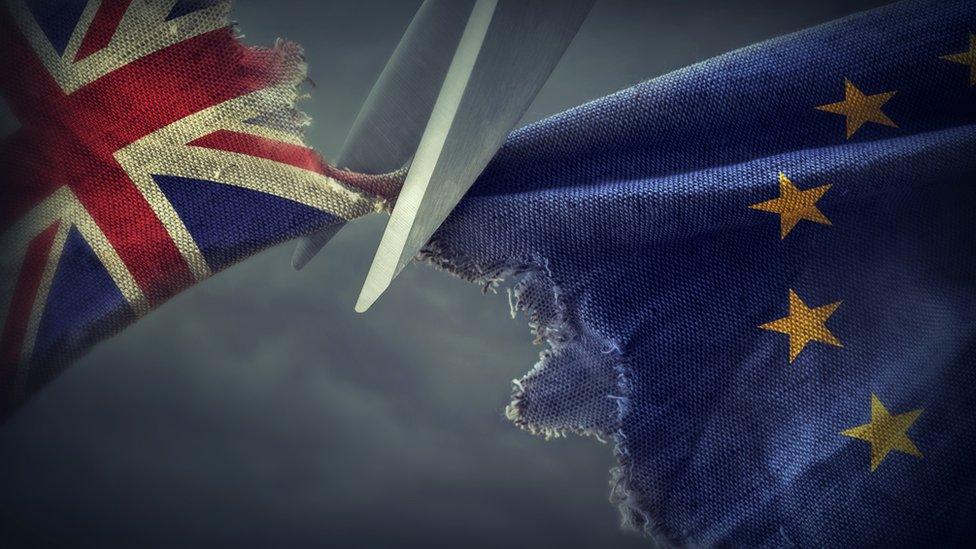
The idea of a transition period after Brexit is being talked about more and more often. But there's very little consensus on what it might look like.
Bespoke or off-the-peg? In the frustratingly fuzzy terminology of Brexit, this tailoring choice, between something made to measure and ready-to-wear, is often used to describe the options for stitching together a relationship between the UK and the EU immediately after Brexit in March 2019.
This is not to be confused with the long-term "deep and special partnership" Theresa May promises.
Rather, it is what the prime minister describes as an "implementation period" but many others call "the transition" - the adjustment phase between Britain leaving the EU and arriving at some future and final destination.
When Mrs May talks about a "smooth" Brexit that avoids a "cliff edge", it is the arrangements for a transition phase she is referring to, covering customs systems, immigration controls, aviation regulation, criminal justice cooperation and more.
But 15 months on from the EU referendum, and with negotiations in Brussels apparently stuck, the UK government is under pressure (not least from business) to spell out what this transition phase might look like - to replace hazy rhetoric with specific proposals.
This is what cabinet ministers have been scrapping about, both in private and public through the summer, and it may be a focus of Theresa May's speech in Florence on Friday.
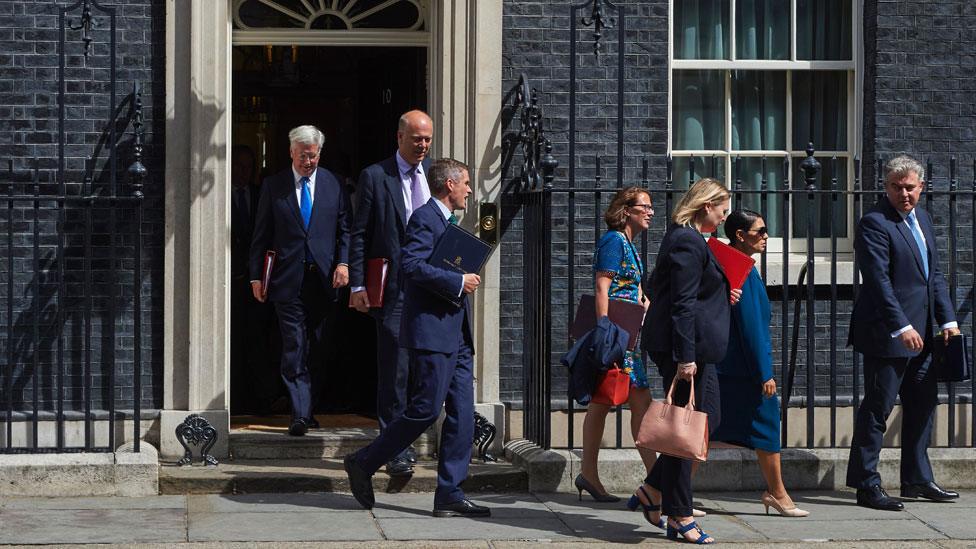
Cabinet ministers have varying ideas on what a "transition phase" might look like
The Article 50 process allows only two years of negotiations to hammer out a withdrawal agreement (the terms of divorce), which should take into account "the framework for [the UK's] future relationship with the union, external".
With six months already gone, it's clear that neither side believes there's any chance of wrapping up and ratifying a new trade deal in that time.
In fact legally, the EU can conclude a new trade relationship with the UK only after Britain has left. That's why the government now believes a transition period will be necessary. It will have to be negotiated with the EU, of course, but what do we know about Theresa May's thinking?
Even though there is no formally stated government position, her ministers were very loquacious on the subject over the summer, and splits have been clear.
On 20 June, the Chancellor, Philip Hammond, pressed the need to negotiate "mutually beneficial transitional arrangements". A month later, the Trade Secretary, Liam Fox, (a leading Leave campaigner) said any transition period had to end by the date of the next election, due in 2022.
In mid-August, the two cabinet ministers wrote a joint article stating a "time-limited interim period will be important to further our national interest and give business greater certainty - but it cannot be a back door to staying in the EU". They also said the UK would be outside the customs union during this transition period.
Then on 12 September, Philip Hammond told a House of Lords committee the government was looking for a transition deal that looked "a lot like the status quo".
It's a fair guess that the Foreign Secretary, Boris Johnson, does not. His 4,300-word rumination in the Daily Telegraph on Britain's post-Brexit future made no mention of a transitional period.
Speaking afterwards in New York, Mr Johnson said the UK should not make any "extortionate" payments to the EU for access to the single market after Brexit, and insisted any transition period should not be "too long".
The argument goes on, and soon Theresa May will have to choose. Although the cabinet does seem to broadly agree a transitional period is needed, it is a political minefield for the prime minister.
The government has been adamant that Britain will no longer be a member of the single market on Brexit day, and will leave the customs union.
Instead, it wants continued access to the single market and customs arrangements as frictionless as they are now, while having the freedom to strike trade deals with non-EU countries. That's the "sweet spot" status quo Philip Hammond has talked about.
The Tories' opponents say this is a fantasy.
Over the summer, the Labour Party arrived at the view that the only way to minimise economic disruption during a transition period was to keep Britain in the single market (through membership of the European Free Trade Association and the European Economic Area) and the customs union.
It is one obvious "off the shelf" option. But for many Eurosceptic Conservatives, it is a non-starter. It would mean the continued free movement of people to Britain, a continued role for the European Court of Justice and a hefty price tag.
But Henry Newman, director of the think tank Open Europe, thinks a "pay-to-play" arrangement is what the UK is likely to seek.
"I think the UK is going to have to say it will voluntarily impose ECJ judgements, and voluntarily pay as if we were EU members during that period," Mr Newman says.
Furthermore, putting money on the negotiating table now to pay for a transition deal could be a way for the UK to unblock the stalled talks.
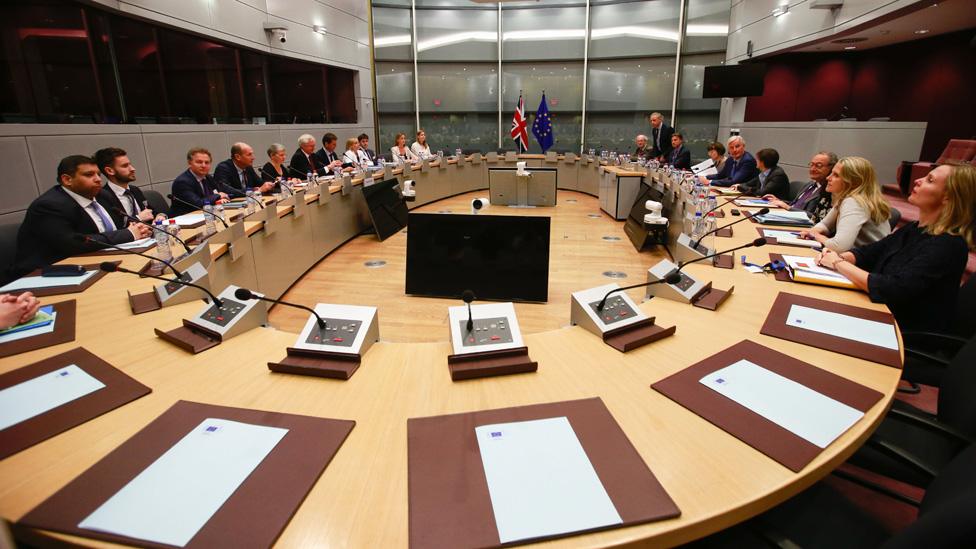
Brexit talks in Brussels are currently focused on UK payments to the EU, rather than trade arrangements
How much? The figure of 10bn euros a year for three years is often heard around Whitehall. So long as payments do not continue beyond the transition period, Boris Johnson may be kept on board.
Apart from the cost, the big concern among Brexit-supporting Tories is that a transition deal that looks a lot like the status quo could harden into something permanent.
Prof Kenneth Armstrong is the author of Brexit Time: Leaving the EU - Why, How and When? He believes that if the UK negotiates its way into the single market, the aim of then negotiating a comprehensive free trade agreement with the EU might be put off indefinitely. The result? "A UK that finds itself lost in transition," Prof Armstrong warns.
Complicating matters further for the UK is the fact the EU shows no inclination to sew together a bespoke transitional deal.
The EU's own negotiating mandate is clear that any transitional arrangements must be in the interests of the European Union, "limited in time, and subject to effective enforcement mechanisms".
EU leaders will not want the UK to have the benefits of the economic status quo without the obligations of membership. "No cherry picking," is the mantra in Brussels.
The remaining 27 members of the EU are (so far) united in aims and tactics. Even if Theresa May manages to bind her cabinet around a transition position that satisfies all wings of her party, it will still need the consent of the EU.
Negotiations with the EU are likely to move forward only if the UK is much more explicit about the price it is willing to pay and can map out where a transition will eventually lead.
- Published19 September 2017
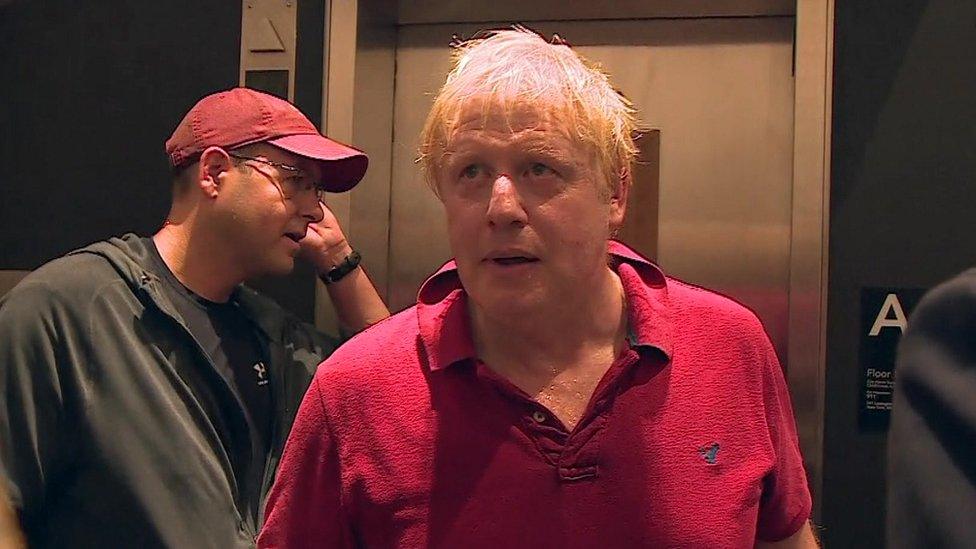
- Published18 September 2017
- Published18 September 2017
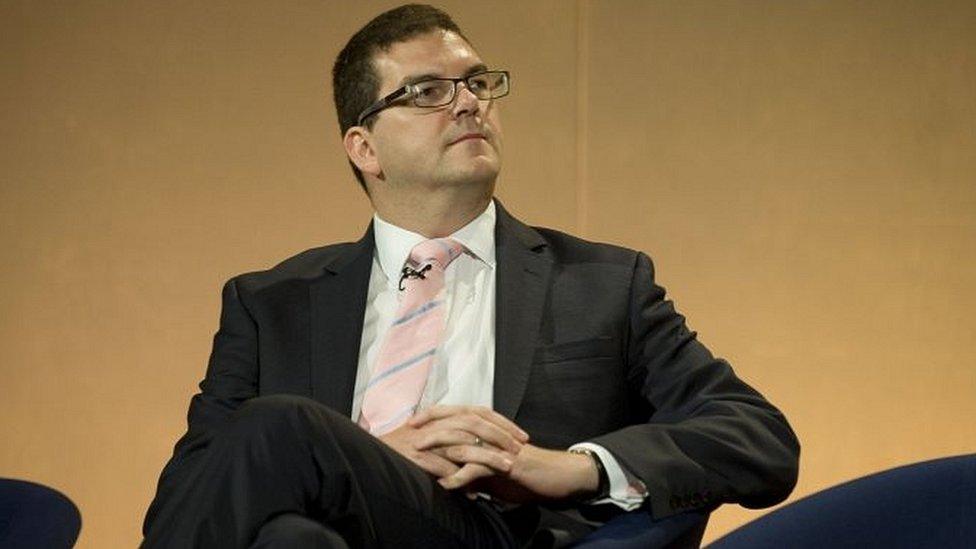
- Published13 September 2017
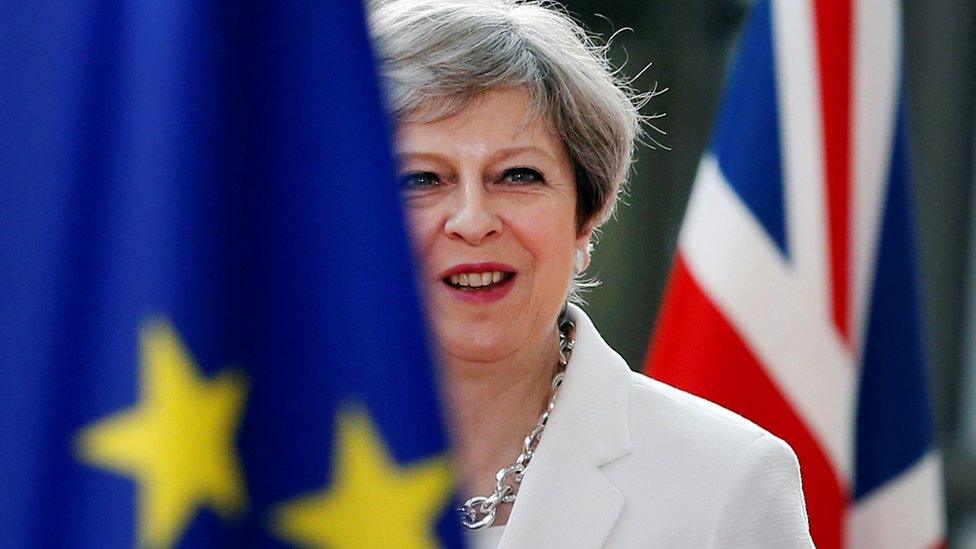
- Published13 September 2017
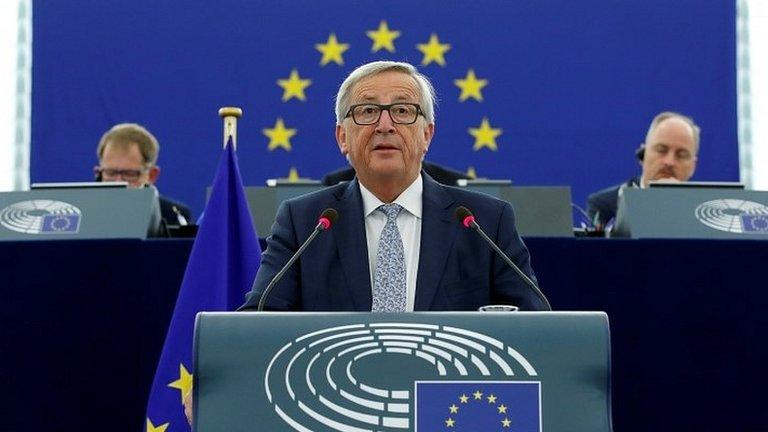
- Published31 August 2017
